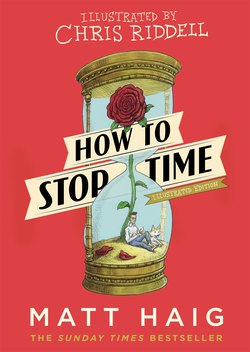Читать книгу How to Stop Time - Matt Haig - Страница 23
На сайте Литреса книга снята с продажи.
ОглавлениеLondon, now
At lunch break I nip to the supermarket down the street and buy myself a pastrami sandwich, some salt and vinegar crisps and a small bottle of cherry juice.
There is a queue for the checkout assistant so I do what I normally resist and use the self-service checkout.
Like the rest of the day so far, it does not go well.
The disembodied female voice keeps telling me of an ‘unidentified item in bagging area’, even though the only items in the bagging area are the items I had just scanned.
‘Please ask a member of staff to assist you,’ she – the robot future of civilisation – adds. ‘Unidentified item in bagging area. Please ask a member of staff to assist you. Unidentified item in bagging . . .’
I look around.
‘Hello? Excuse me?’
There are no members of staff. Of course there aren’t. There is, however, a group of teenage boys all wearing variations of the Oakfield uniform (white shirts, and a few green and yellow ties) all in the queue, holding drink cans and packets of food and looking in my direction. They say something, identifying me as a new teacher. And then there is some laughter. I feel the most familiar feeling of all: that I am living in the wrong time. And I stand there, just staring at the screen and listening to the voice, my head aching, and my soul slowly wondering if Hendrich was right. Maybe I shouldn’t have come back to London.
*
As I walk along the corridor to the staff room I pass the woman with glasses. The one who I had seen in the park, reading. The French teacher Daphne had told me about. The one who had stared at me in that disconcerting way. She is wearing red cotton trousers and a black polo-neck and shiny patent flat shoes. Her hair is pulled back. A confident, civilised look. She smiles.
‘It’s you. From the park.’
‘Oh yes,’ I say, as if I was only just remembering at that moment. ‘That was you. I’m the new history teacher.’
‘How funny.’
‘Yes.’
Her smile is also a frown, as though I confuse her. I have lived long enough to know this look. And fear it.
‘Hello,’ I say.
‘Hello there,’ she says, with a slight French accent. I think of the forest. My mother singing. I close my eyes and see a sycamore seed spiralling beneath a hard blue sky.
I feel a familiar sense of claustrophobia. Confinement. As if this world is never big enough to hide in.
And that is it.
I have to keep walking, as if I can also walk away from what she might be thinking.
After my first day teaching, I sit at home next to Abraham with his head on my lap. He is asleep, lost in dog dreams. He flinches and twitches, like a stuttering image, stuck between two moments. He whimpers a little. I wonder what memories he is reliving. I put my hand on him, stroking to soothe him. Slowly, the movement stops. He makes no sound but that of his breath.
‘It’s all right,’ I whisper. ‘It’s all right, it’s all right, it’s all right . . .’
I close my eyes and I see the towering form of William Manning as clear as if he is in the room.
